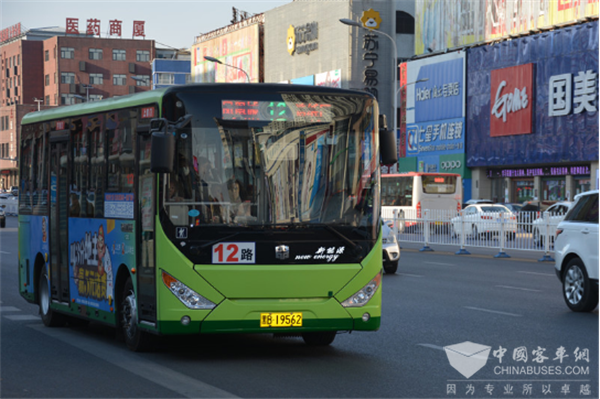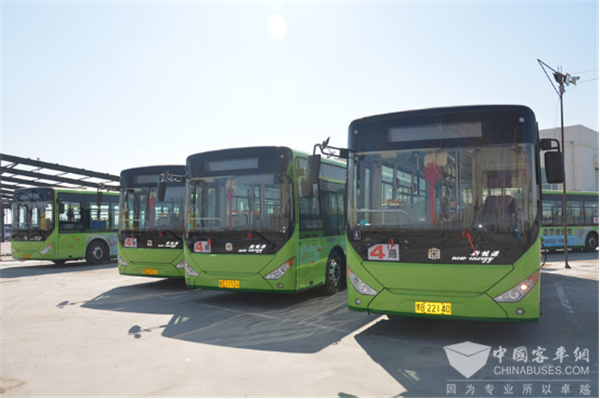In 2017, Qiqihar Zhongtong Public Transport Co., Ltd. (hereafter referred to as Zhongtong Public Transport) introduced 400 units 8-meter and 10-meter Zhongtong electric buses. So far, these vehicles have been working smoothly in the city, beating the extreme cold and fully demonstrating their high reliability and high fuel economy.

Equipped with Ningde Times power batteries, Zhongtong electric buses deliver powerful performances even in some harsh weather conditions. The 8-meter Zhongtong electric bus has a power storage of 138 kW.h while the 10-meter bus 160 kW.h. Both are being recharged at night to ensure their smooth operation in the daytime. Data show that they usually have 20-25% power left after a day’s operation in summer time and 12-15% power left after a day’s operation in winter time.
Zhongtong Public Transport is specialized in providing public transport services in the urban and suburban areas in Qiqihar. Currently, it boasts over 500 units buses and coaches.

According to Li Yanming, president of Zhongtong Public Transport, his company has considerably cut its operation costs thanks to the introduction of Zhongtong electric buses. To provide heating for all passengers on board in winter, Zhongtong electric bus has adopted diesel-powered heaters, thus reducing the operating costs of each electric bus to about 100 RMB each day.
To ensure the smooth operation of all Zhongtong electric buses, the bus maker has already set up two service stations. Over 30 technicians and after-sales workers are available to provide comprehensive services around the clock.
Before making the purchase of 400 units Zhongtong electric buses, Zhongtong Public Transport had made thorough investigations in China. “We want vehicles that must be able to recharge and discharge in -40℃ and should maintain a competitive continuous driving distance. In addition, they should fully meet the demanding transportation tasks in the day time after being recharged at night,” said Li Yanming.
Currently, Zhongtong Public Transport over 40 bus routes and only two are still powered by fossil fuels. In 2018, the bus operator is planning to replace all its fossil fuel powered vehicles with electric ones.()